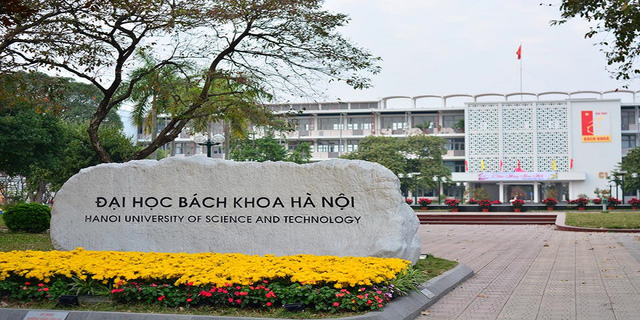[ad_1]

The Hanoi University of Science & Technology
Vietnam’s two national universities have been listed in the QS’ latest ranking of top 1,000 universities in the world. However, Vietnamese educators admitted that there is still a big gap between Vietnamese and regional universities.
Singapore, for example, has two universities in top 15 – Nangyang and NUS. Four Filipino universities have been in the QS ranking for many years at positions higher than Vietnam’s. A school in Indonesia ranks 277th.
|
Vietnam’s two national universities have been listed in the QS’ latest ranking of top 1,000 universities in the world. However, Vietnamese educators admitted that there is still a big gap between Vietnamese and regional universities. |
Meanwhile, the positions for Vietnam’s universities are modest – in the group of schools ranked from the 701st to 750th for HCMC National University, and 801st to 1,000th for Hanoi National University.
No Vietnamese school appears in THE (Times Higher Education) annual rankings.
Nguyen Loc from Nguyen Tat Thanh University said the low positions of Vietnam’s universities are understandable. The universities are not highly appreciated in training quality, scientific research and education internationalization.
Lam Quang Thiep, former director of the higher education department, commented Vietnam is still far from the target of having universities listed among the world’s top 100. Even the top 200 is a faraway dream.
However, participating in international ranking and striving for high positions is a must for Vietnam’s tertiary education, according to Huynh Thanh Dat, director of the HCMC National University.
Experts all agree that to improve quality, Vietnam’s universities need autonomy which is associated with academic freedom. And in order to give autonomy to schools, Vietnam will have to amend the current law.
Deputy Minister of Education and Training Nguyen Van Phuc, at a workshop on improving Vietnam universities’ rankings, mentioned the amendment of the Tertiary Education Law which is expected to be ratified later this year, as a solution to obtain this goal.
Thiep said that to run under the principle of autonomy, schools must escape the current governing mechanism, which means they must become independent financially and institutionally from the governing bodies.
However, relevant laws and legal documents do not mention this. It is necessary not only to amend the higher education law, but also other relevant laws. This will be a long process.
Sharing the same view, Nguyen Duc Hinh, Rector of the Hanoi Medical University, commented that autonomy is an attribute of universities.
While the government released Resolution 77 on giving autonomy to some schools on a trial basis, other legal documents remain unchanged. Therefore, schools still cannot enjoy full autonomy.
Nguyen Dang Dung from the Hanoi National University also emphasized the need for academic freedom, saying that he does not see freedom in the laws.
RELATED NEWS
How do Vietnam’s two schools in the QS ranking fare in research capacity?
University accreditation: ‘a game of the rich’?
Nam Lich
[ad_2]
Source link
